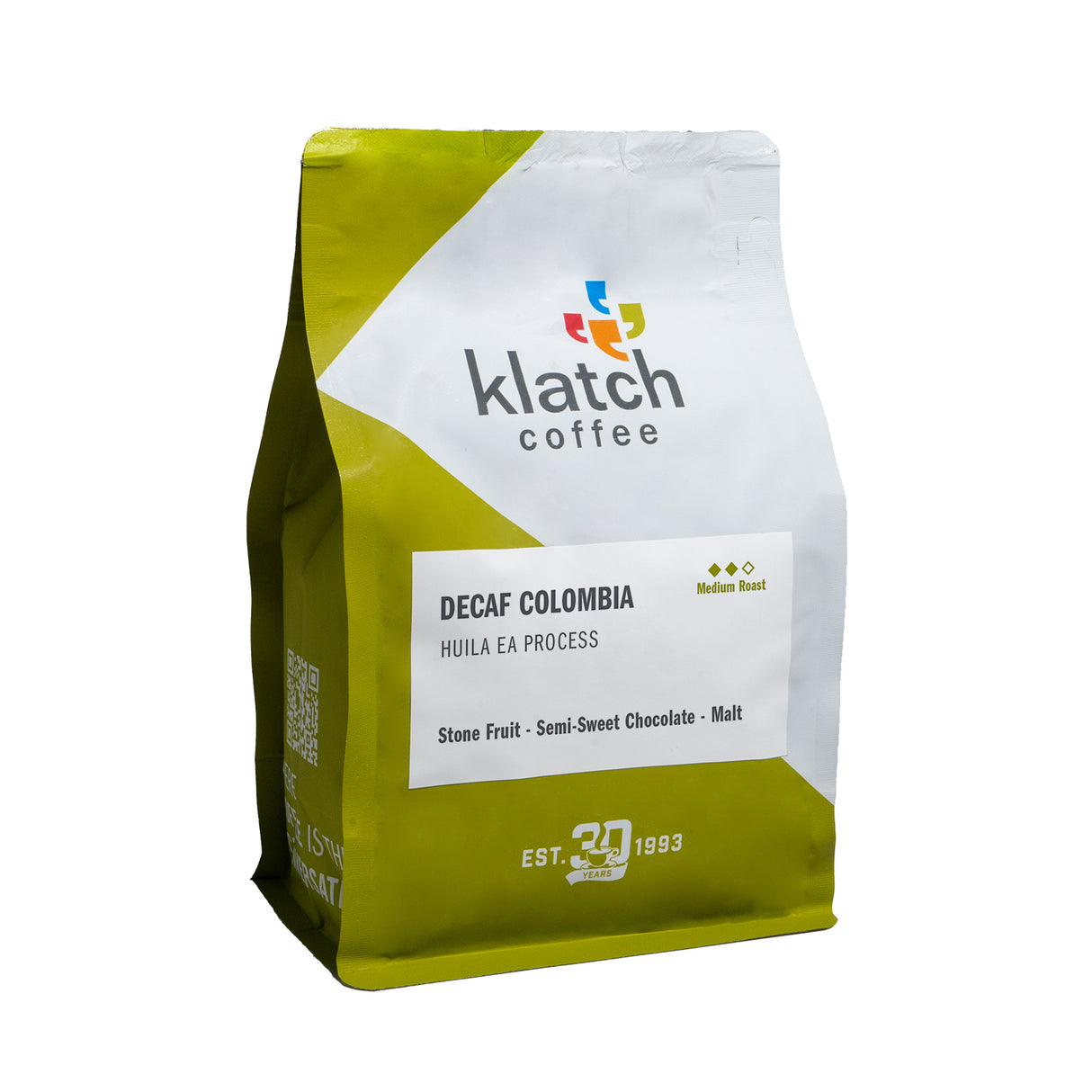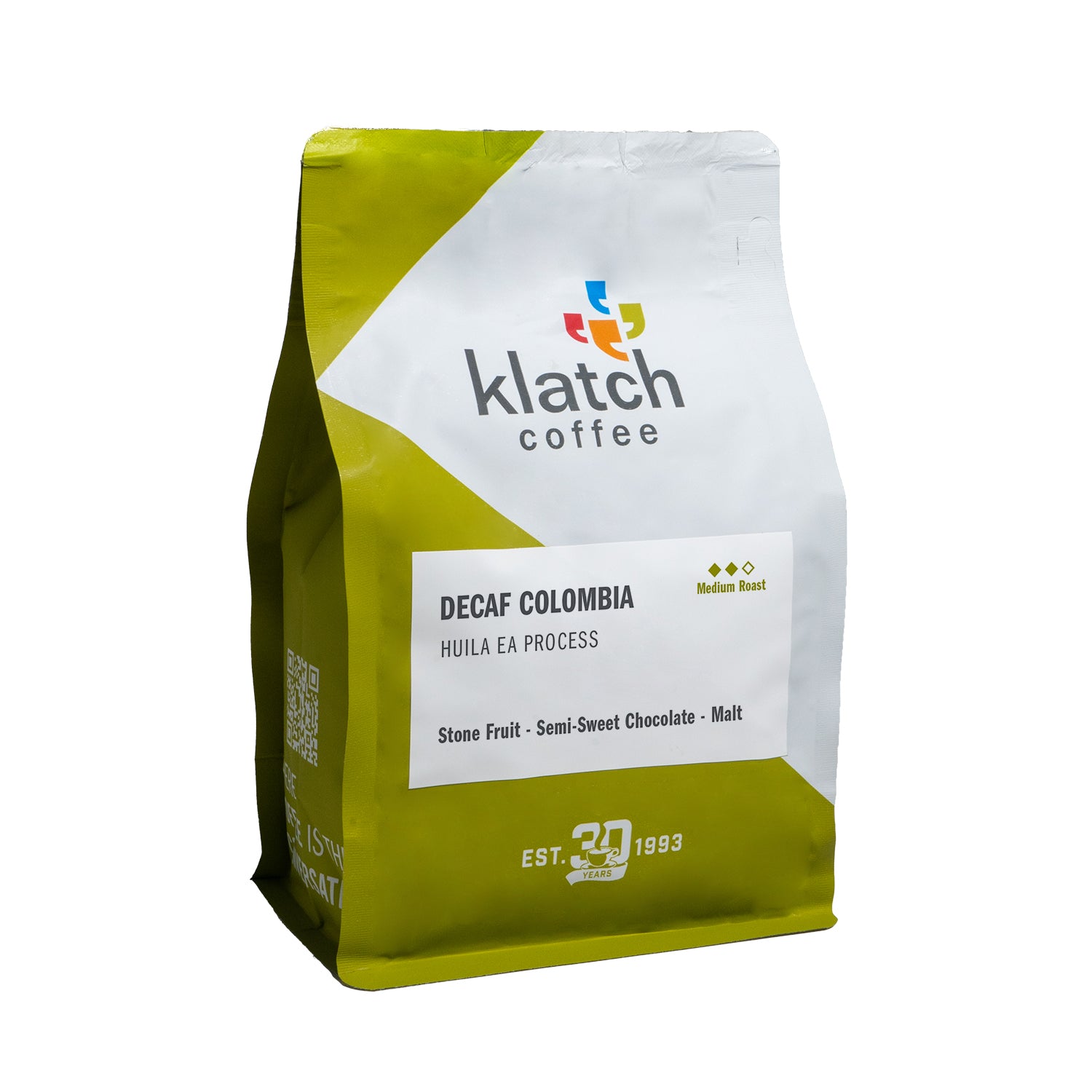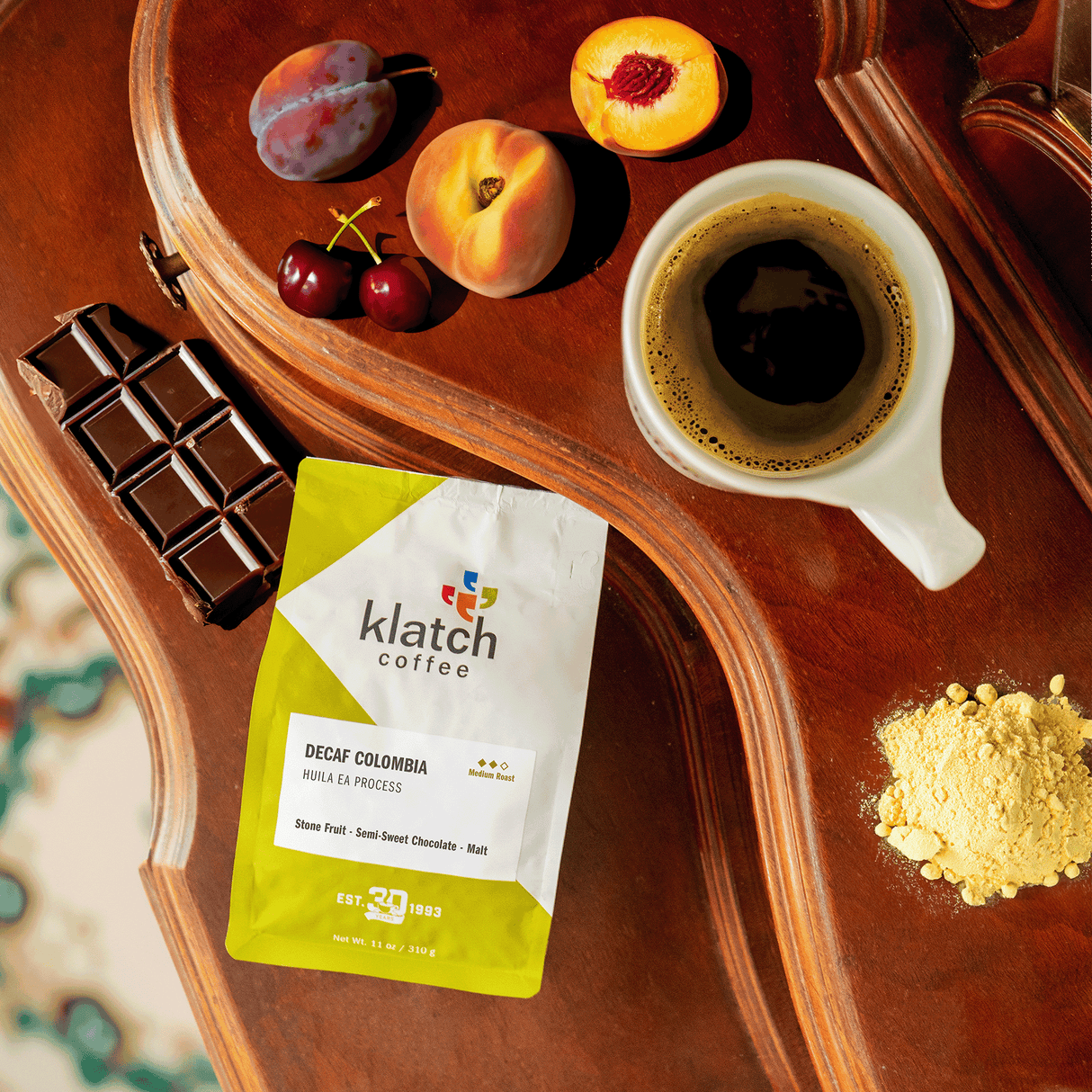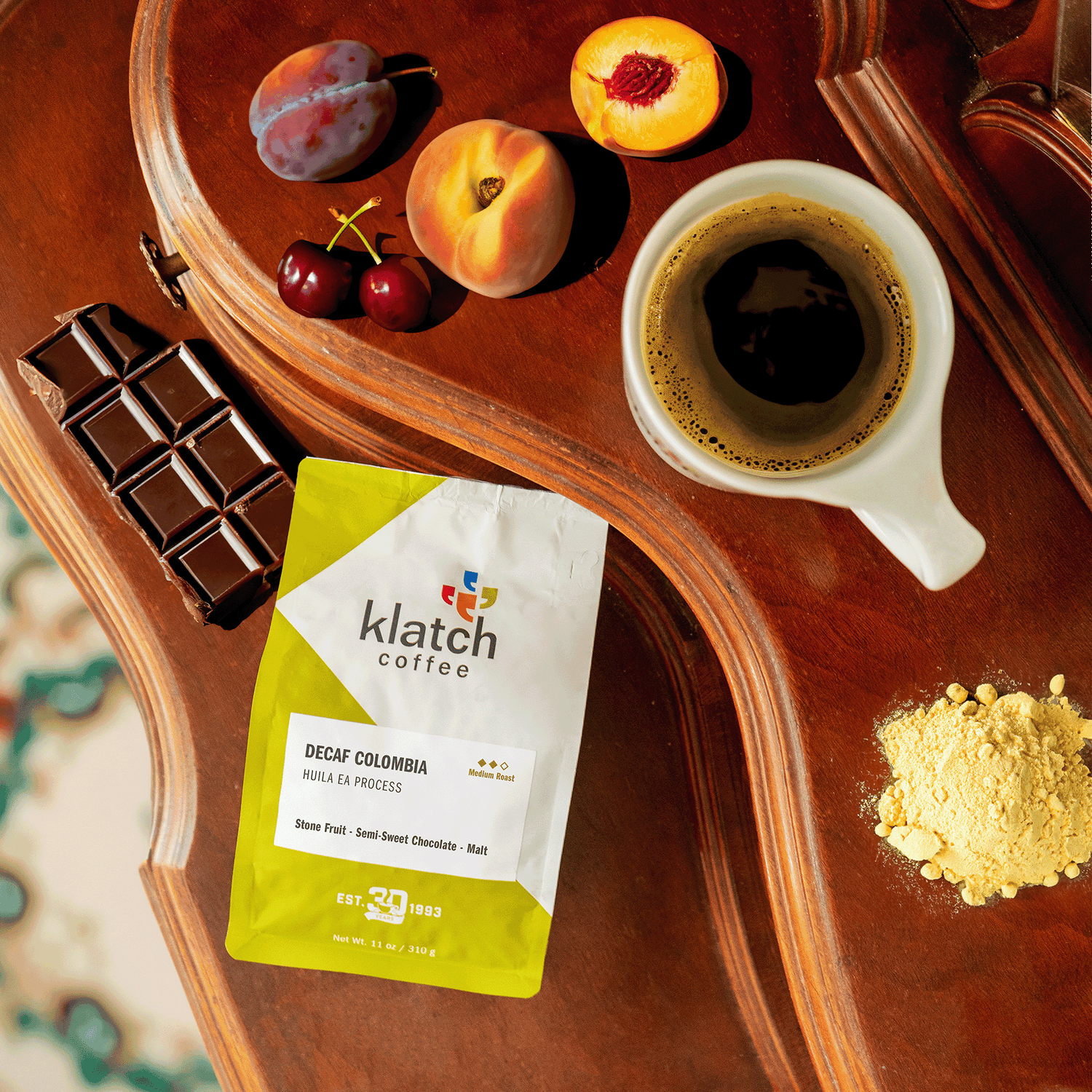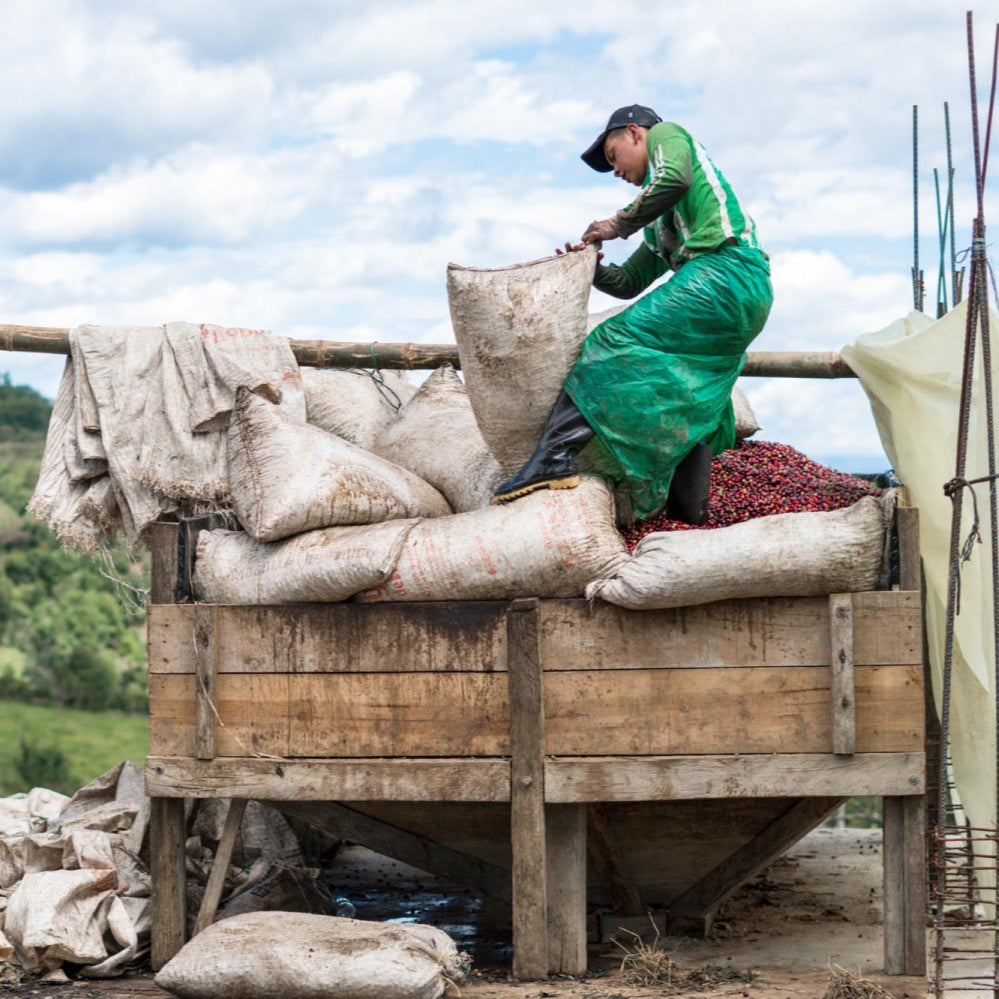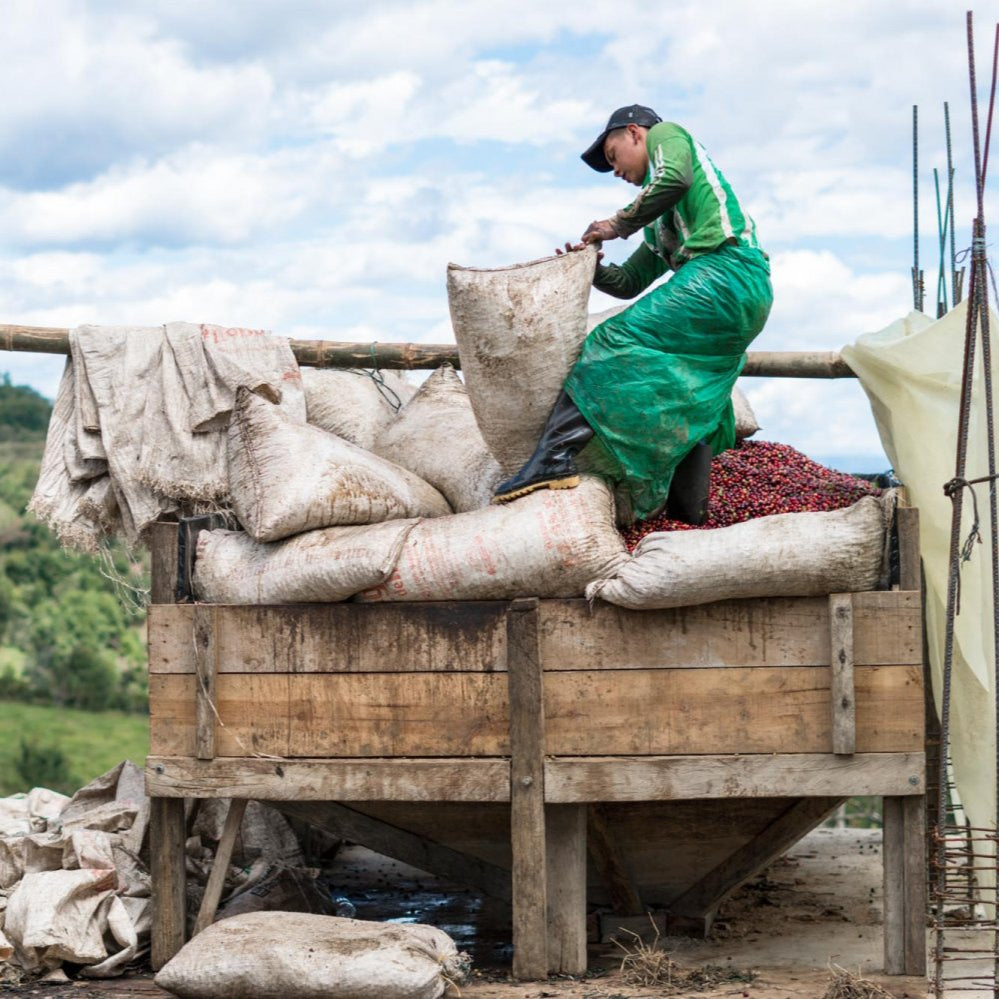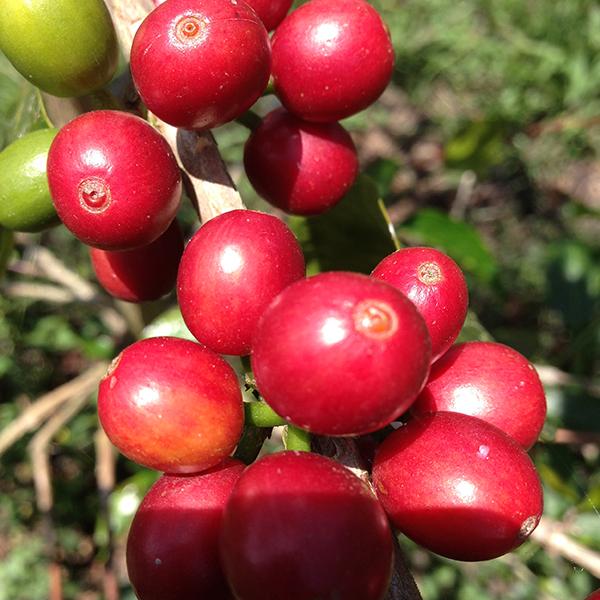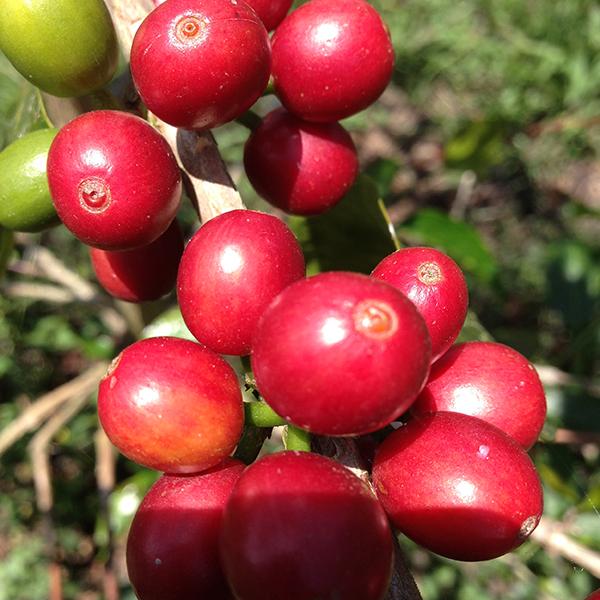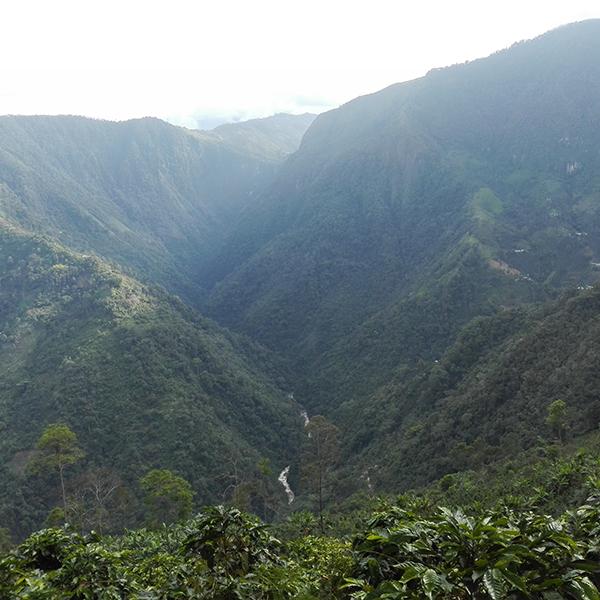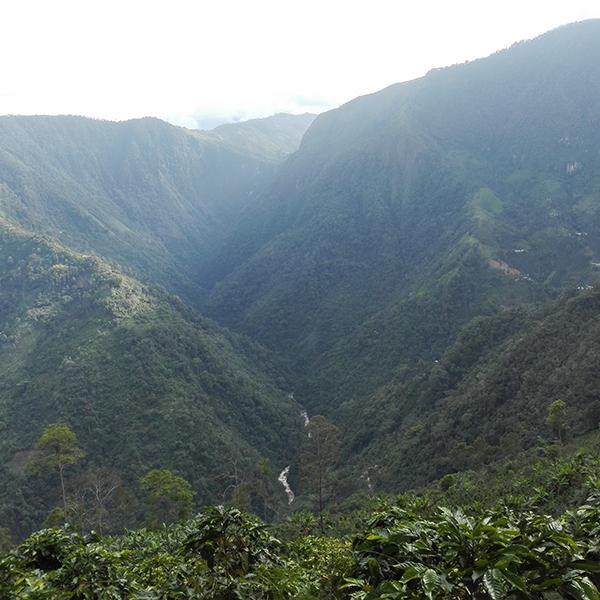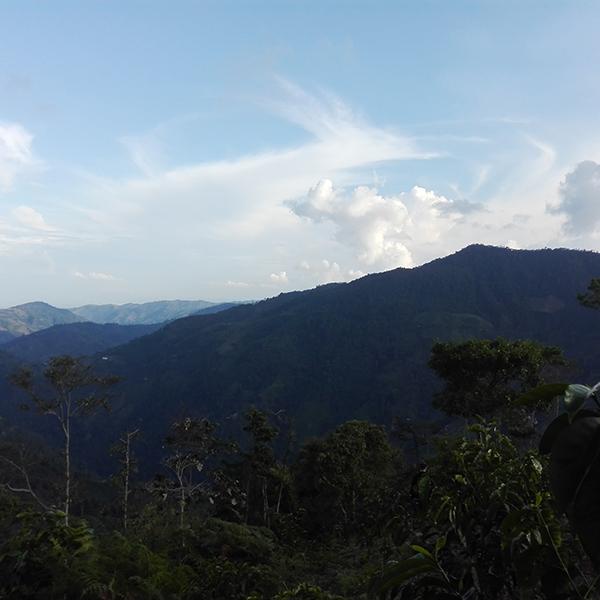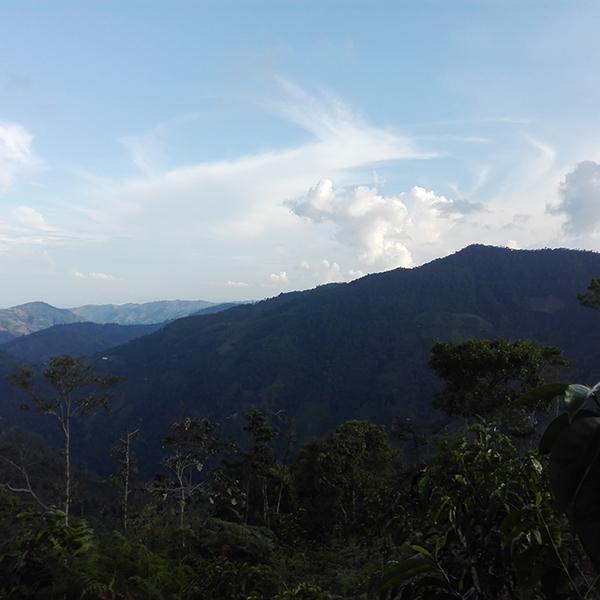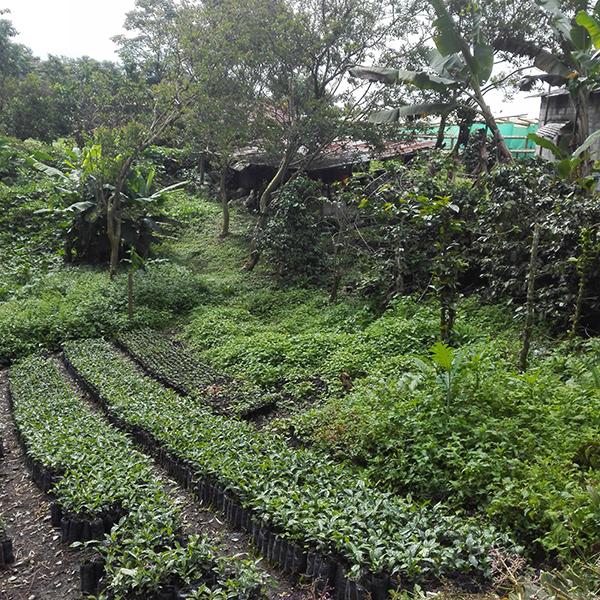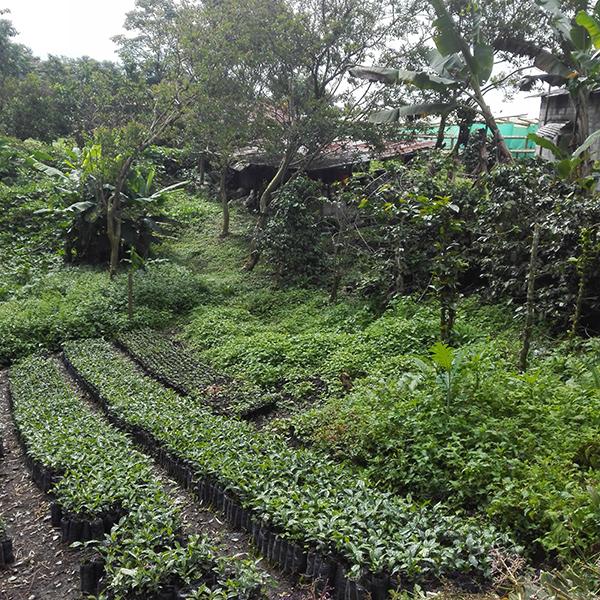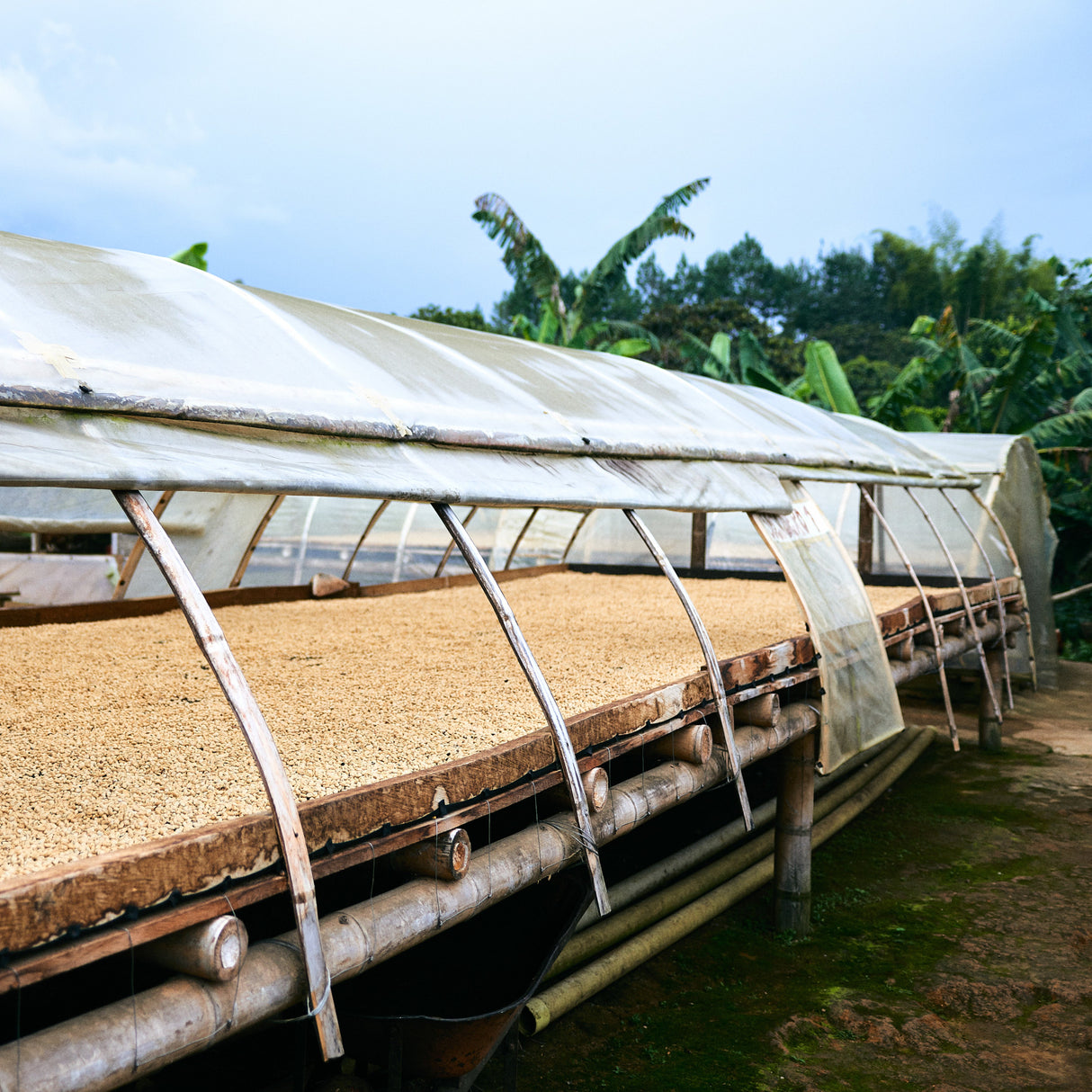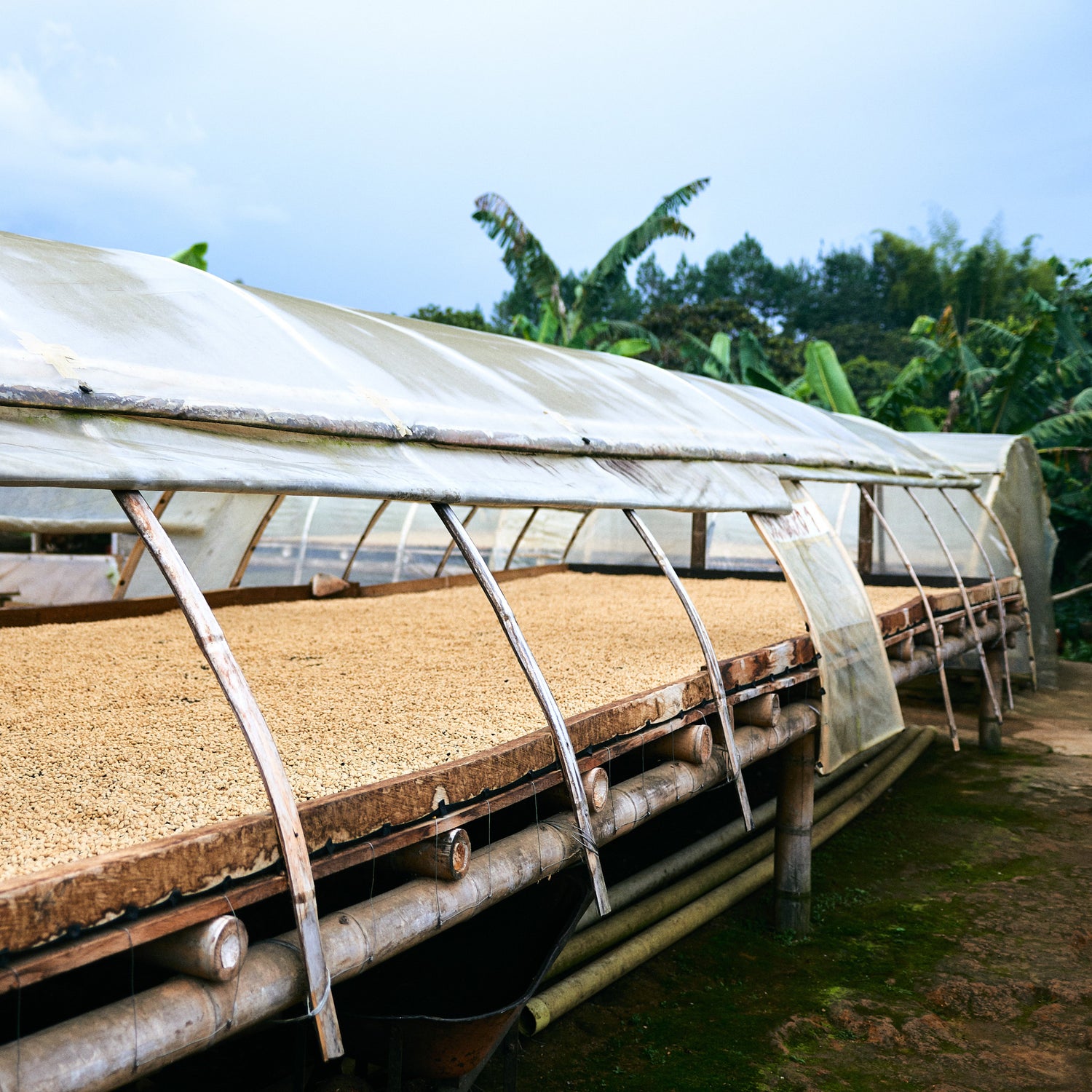Decaf Colombia Huila EA
Roasted to Order
Roasted to Order
Always roasted to order, so you receive the freshest coffee possible.
Free shipping on orders over $50
Free shipping on orders over $50
Enjoy free shipping on all $50 orders.
Starting a club subscription? Shipping on club orders is always free, regardless of order size.
Description
Description
Decaf Colombia Huila EA delivers a delightful decaffeinated coffee experience with its harmonious blend of stone fruit, semi-sweet chocolate morsels, and malt flavors. Savoring this unique and delicious combination is always a pleasure for coffee enthusiasts.
Located in southwestern Colombia, Huila is nestled in-between the Central and Eastern ranges of the Andes, with the middle area called the Magdalena Valley. The variation in elevation results in Huila being one of the country's most unique and complex regions of coffee production. Its terroir, climate, and harvest cycles all contribute to the quality of coffee produced here. The most impressive quality behind the coffees coming out of the Huila region lies in the people producing said coffee. While Huila accounts for nearly 20% of the country’s coffee production, 80% of producers operate on less than three hectares.
Specifications
Specifications
-
Roast Level
-
VarietalColombia, Caturra, Castillo
-
Process
-
Farm
-
Farmer
-
Region
-
Mouthfeel
Decaf EA Ethyl Acetate Process
Decaf EA Ethyl Acetate Process
History of Colombian Coffee
History of Colombian Coffee
Payment Methods
Quick, easy, and secure
Klatchcoffee.com accepts Visa, Mastercard, PayPal, and Apple Pay.
